Review| The Martian
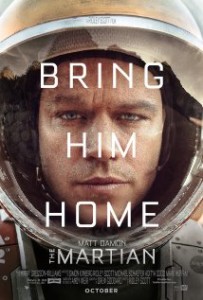 Adapted from Andy Weir’s bestselling debut novel, The Martian hits theaters as one of the most highly anticipated films of the year. With this excitement, however, comes the lingering fear that Ridley Scott’s film will fail to distinguish itself from the recent forays into the space movie genre by Alfonso Cuarón and Christopher Nolan. In light of the formally innovative and suspenseful weightiness of Gravity (2013) and the overbearing self-importance of Interstellar (2014), however, The Martian stands out as a refreshing reminder that space movies can be a lot of fun (and have something intelligent to say at the same time).
Adapted from Andy Weir’s bestselling debut novel, The Martian hits theaters as one of the most highly anticipated films of the year. With this excitement, however, comes the lingering fear that Ridley Scott’s film will fail to distinguish itself from the recent forays into the space movie genre by Alfonso Cuarón and Christopher Nolan. In light of the formally innovative and suspenseful weightiness of Gravity (2013) and the overbearing self-importance of Interstellar (2014), however, The Martian stands out as a refreshing reminder that space movies can be a lot of fun (and have something intelligent to say at the same time).
The Martian, wasting no time on unnecessary exposition, opens on the Red Planet, where a team of astronauts are forced to cut their mission short in the face of a haboob-like storm. As the cadre discusses safety precautions amidst the swirling and howling dust, Mark Watney (Matt Damon) is struck by a piece of flying debris and is lost in the darkness that now engulfs the mission site. 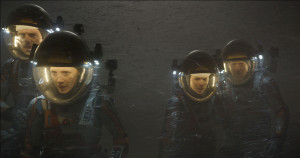 After a futile search and rescue operation, Captain Lewis (Jessica Chastain) orders the crew to vacate the planet and return to earth. Watney, however, weathers the storm and finds himself stranded on Mars without any way to contact his team.
After a futile search and rescue operation, Captain Lewis (Jessica Chastain) orders the crew to vacate the planet and return to earth. Watney, however, weathers the storm and finds himself stranded on Mars without any way to contact his team.
It is here (where Damon’s character comes to terms with the bleakness of his circumstance) that we expect The Martian to fall back on the well-worn tropes of survival cinema: extended periods of dialogue-free action in which the hero proves his or her resourcefulness, followed by lengthy nihilistic-yet-paradoxically-inspiring philosophical musings, and things of like nature. It comes as a welcome surprise, therefore, to find that Mark Watney is among the more cheerful and loquacious of the cinematically marooned in recent memory. He regularly records video logs that afford him the chance to make light of his dire situation, and even the stereotypically melodramatic scene where the protagonist reestablishes contact with his homeland is imbued with a charm and humor that makes room for genuine emotional power. Moreover, a ‘70s-heavy soundtrack serves as a constant reminder that you haven’t had this much fun in space since Guardians of the Galaxy (2014).
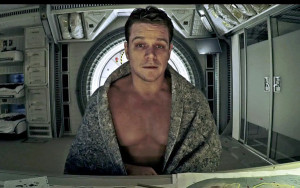 The Martian also avoids another common survival movie pitfall by keeping its audience engaged for the entirety of its somewhat intimidating 141-minute runtime. It is not uncommon for similar films to languish in the second act, but The Martian is extraordinarily well-paced—thanks, in large part, to the frequent cross-cutting between action on Mars and the rescue plan afoot back home on Earth. Ridley Scott’s film is thoroughly engrossing from start to finish. This abundance of infectious and charming vivacity in The Martian should not, however, be taken as an indication that—to briefly subvert our mantra at Reel World Theology—its entertainment is, in fact, mindless. On the contrary, the genius of director Ridley Scott and screenwriter Drew Goddard is most prominently seen in that they have made an immensely enjoyable film that nevertheless speaks to our very present need for tolerance and civility in harrowing times.
The Martian also avoids another common survival movie pitfall by keeping its audience engaged for the entirety of its somewhat intimidating 141-minute runtime. It is not uncommon for similar films to languish in the second act, but The Martian is extraordinarily well-paced—thanks, in large part, to the frequent cross-cutting between action on Mars and the rescue plan afoot back home on Earth. Ridley Scott’s film is thoroughly engrossing from start to finish. This abundance of infectious and charming vivacity in The Martian should not, however, be taken as an indication that—to briefly subvert our mantra at Reel World Theology—its entertainment is, in fact, mindless. On the contrary, the genius of director Ridley Scott and screenwriter Drew Goddard is most prominently seen in that they have made an immensely enjoyable film that nevertheless speaks to our very present need for tolerance and civility in harrowing times.
In a recent interview, Drew Goddard characterized The Martian as a “religious movie.” His comments are worth quoting at length:
One of the things I said in my first meeting with Fox is, “Think of this movie as a religious movie. The religion in question is science.” It’s structured very much about a man being lost in the wilderness and trusting his faith to get him through it. In that regard it harkens back to a lot of the religious movies of old, and I thought that was a good way to approach this, a good way to structure it. Because it is about science. It was important to touch on it. I like characters having these different points of view and still supporting one another. One character’s religious, one character’s not – they still believe in each other. They can still come together. That was very much in the book.[1]
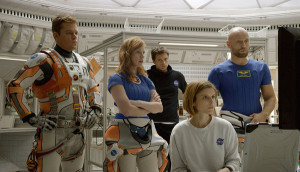 While many Christians will likely take the above comments as an invitation to criticize the film’s alleged naturalism (or spend their efforts waxing philosophical about “science as a pseudo-religion”), I think such endeavors miss a larger concern embedded in the text. As Goddard helpfully points out, The Martian functions as a plea for less highly-charged political rhetoric, less bickering, and more cooperation and nuanced, edifying dialogue. For the Christian and non-Christian viewer, then, The Martian affords us the opportunity to consider afresh our characterization of and interaction with those with whom we share religious, political, and cultural differences. The staggering amount of teamwork on display in The Martian—even in the face of differing ideologies—is a reminder that, far too often, our lives do not reflect an earnest attempt to “live peaceably with all” (Rom. 12:18). We would all do well to act like we actually believe that people are made in the image of God. Or we could continue to treat those with whom we disagree like they’re from another planet. But The Martian challenges the notion that individualism, which is regrettably characteristic of large sectors of American Christianity, is a sustainable or healthy model.
While many Christians will likely take the above comments as an invitation to criticize the film’s alleged naturalism (or spend their efforts waxing philosophical about “science as a pseudo-religion”), I think such endeavors miss a larger concern embedded in the text. As Goddard helpfully points out, The Martian functions as a plea for less highly-charged political rhetoric, less bickering, and more cooperation and nuanced, edifying dialogue. For the Christian and non-Christian viewer, then, The Martian affords us the opportunity to consider afresh our characterization of and interaction with those with whom we share religious, political, and cultural differences. The staggering amount of teamwork on display in The Martian—even in the face of differing ideologies—is a reminder that, far too often, our lives do not reflect an earnest attempt to “live peaceably with all” (Rom. 12:18). We would all do well to act like we actually believe that people are made in the image of God. Or we could continue to treat those with whom we disagree like they’re from another planet. But The Martian challenges the notion that individualism, which is regrettably characteristic of large sectors of American Christianity, is a sustainable or healthy model.
In the end, The Martian is a near-perfect embodiment its genre’s ability to invoke a child-like sense wonder and simultaneously speak to the human condition. It is both wildly entertaining and incredibly timely. Plan a trip to the theater and see The Martian.


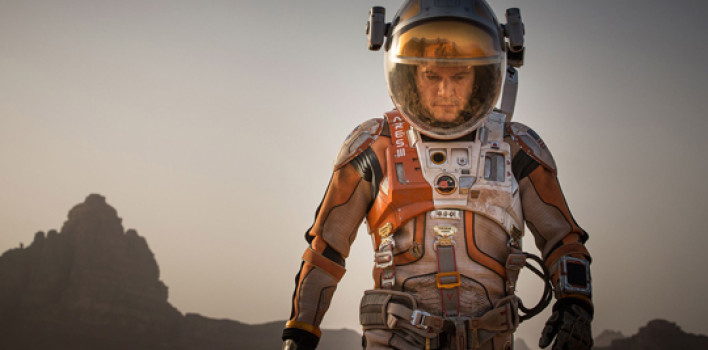
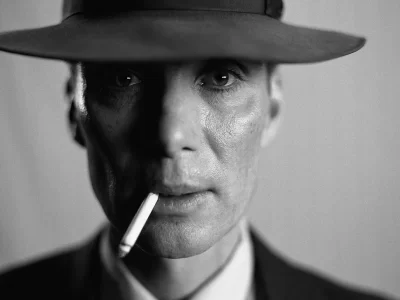




Pingback: #075 – The Martian and Earthly Optimism | Reel World Theology